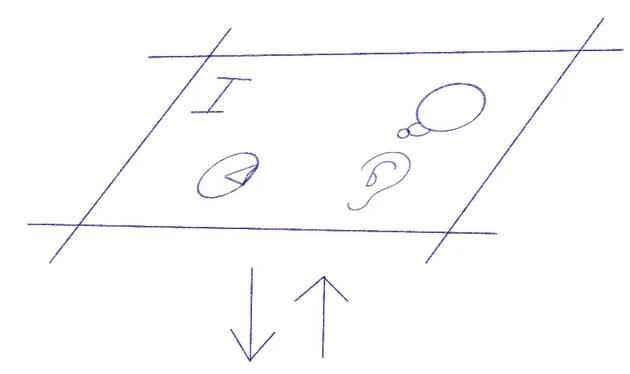May 30, 2024 Mindfulness
Techniques to train your mind - passed on through ancient traditions and a modern day research proven way to improve life. There must be something to it, I concluded for myself. Here is what I learned so far.
Mindfulness (›wikipedia) is a very broad topic. Specifically, there are several techniques to obtain it and many positive outcomes ascribed to it. In this post I refer to practices divorced from religious contexts that gained popularity with John Kabat-Zinn's work (›MBSR) from the 1970s onward. At its core, it is about observing without willing to change things. Mindfulness is claimed to improve mood, stress, intelligence, and quality of life in general.
The not willing to change things part is described by many teachers as the paradox of Mindfulness. Why would practicing not to want to change anything change anything about my life? I believe that most people draw a parallel to common psychology wisdom, "Accept things the way they are before you attempt to change them". From what I understand, accepting things is a prerequisite to being mindful while the goal is rather inner peace in the moment than an ability to change things in the future.
How do we become more mindful? There are different practices to train our mind. There is formal practice, where you set aside time solely for the practice and meditate. And there is informal practice. While doing any and all activities, pay attention, be present. There are no truly great experiences if one is distracted.
So how is it we can train our minds to improve our lives? What is it that makes us un-mindful? Here is what I think. All things we can be aware of appear in a "plane of consciousness". This metaphor is often presented by Sam Harris in daily meditations on the Waking Up app. This includes all we see, hear, or feel, all thoughts we become aware of, and our sense of self.

In the meditations on Waking Up, you are often suggested to notice the character of your consciousness with things appearing and disappearing and to "simply rest as that". You train to recognize thoughts and to let them go. Chasing after thoughts to elicit further similar thoughts is like poking back at your subconscious and a way to become distracted. It is very natural to intelligent species to experiment, to act on the world and observing its reaction, and it is the basis of all our knowledge. We act, observe, react, observe, and so on. It seems to be possible though, that on this small scale we can develop an unhelpful tendency to react as though on autopilot. These reactions need not necessarily be physical actions, they might be us "poking back" at our subconscious for continuations of thoughts irrelevant in the moment or for more of a particular feeling we became aware of. In particular, I have discovered for myself, that constantly asking "And how does that make me feel?" in response to thoughts and emotions makes me feel worse. Asking repeatedly how something makes me feel does not let me find out more about the topic, it strengthens the first emotional reaction no matter the importance of the topic.
Intertwined with the way we react to appearances in consciousness is identification and the self. The psychology of what we identify with and the feeling of self seem to be very complex and mystical. Mindfulness scholars recommend to recognize that the self is a construction of the mind (Kabat-Zinn) or similar an illusion (Harris). They say that a habit of continually forming a sense of "I" leads to less happiness. Furthermore, this forming of the "I" seems to uncontrolledly comprise experiences and thoughts. Kabat-Zinn talks about relating everything that happens to oneself in the unhealthy process of "selfing", Harris recommends "breaking the identification with thought". Knowing that I need not necessarily identify with every experience or thought feels liberating to me. Paying close attention is the best way to do so.
Despite the fact that the aim of Mindfulness is not too difficult to express, there are many facets to it and I feel that I have not discovered most of them. The time I invested in formal meditation practice was worth it for me. I don't see it as drastically "life changing" at this point and I might never become enlightened in the sense of its origin traditions but I cannot deny having discovered something about my own mind and it improved my mood and relations.
See also
- John Kabatt-Zinn, "Where ever You Go, There You Are", 2005
- The Waking Up App, https://www.wakingup.com
